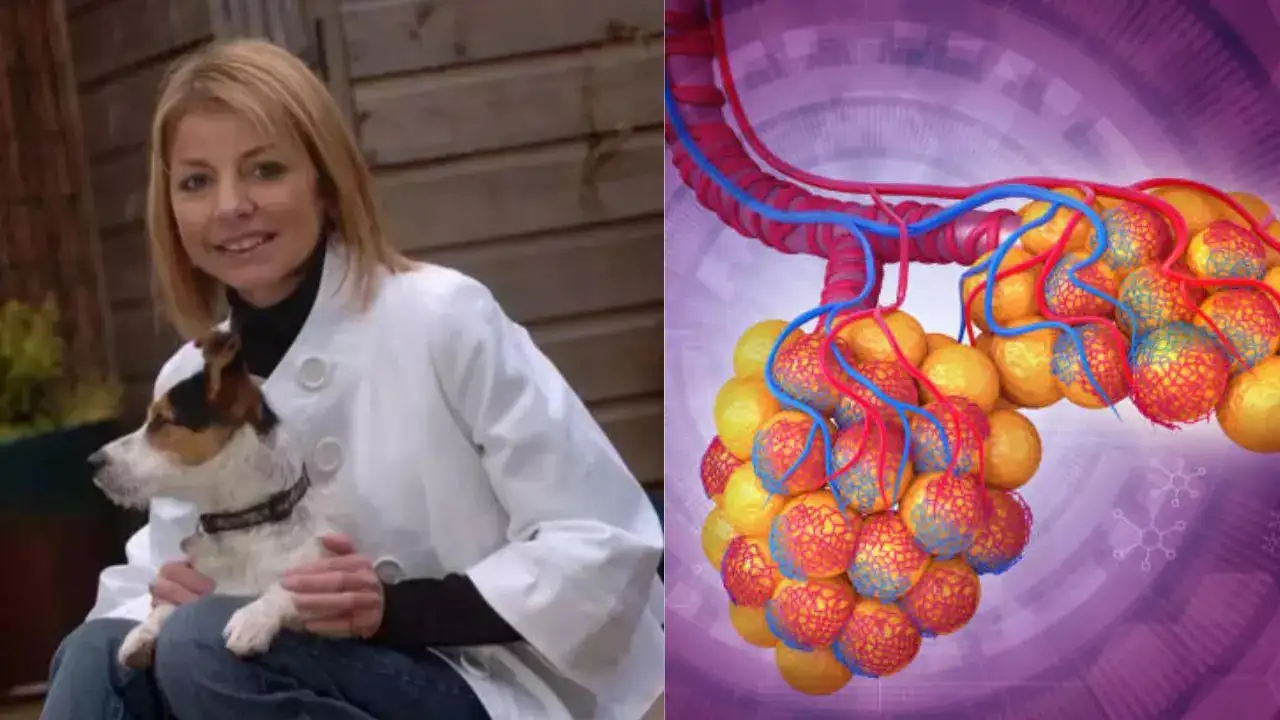
Allison was seven years old when she was told she was among the 10 per cent of cystic fibrosis patients in the world (Pic: The Sun)
The first person in the UK to have all of her major organs—her heart, liver, lungs, and a kidney—transplanted, has died aged 46—more than a decade after her ground-breaking operations.
According to news reports, Allison Angell suffered from cystic fibrosis, due to which she had to get a series of major surgeries over the span of 11 years. Allison passed away at Dinas Powys, south Wales. She had been awarded the Pride of Britain award in 2010 for her bravery in fighting her condition. The "national inspiration" realised a long ambition of becoming a general practitioner as well in the same year.
Allison battled cystic fibrosis all her life
Allison was seven years old when she was told she was among the 10 per cent of cystic fibrosis patients in the world with liver disease. By the time she turned 17, Allison had a liver transplant, and two years later she was given a new heart and lungs.
Even though she could not complete her education in the subjects she wanted, Allison completed a neuroscience degree as a mature student before starting a degree in medicine. However, halfway through the course, she was diagnosed with kidney failure. Her father David donated his kidney to save Allison’s life.
What is cystic fibrosis?
Cystic fibrosis is a genetic disease that causes sticky, thick mucus to build up in your organs, blocking and damaging them. While it mainly destroys your liver, it also affects your lungs and airways, making it hard to breathe and causing frequent infections.
It also forms cysts and scarring or fibrosis in your pancreas, along with blocking ducts that release digestive enzymes, making it hard to get nutrients from your digestive tract. The condition also affects your liver, sinuses, intestines, and sexual organs.
In those who have the condition, a genetic mutation causes low levels of certain proteins, or proteins that don’t work properly. Because of these faulty proteins, minerals that move water into your mucus get trapped inside cells, leaving the mucus thick and sticky.
Cystic fibrosis is a congenital disease and a lifelong illness that gets more severe over time.
Signs and symptoms of cystic fibrosis
A few signs and symptoms of cystic fibrosis symptoms include:
- Frequent lung infections
- Loose or oily poop
- Breathlessness
- Frequent wheezing
- Frequent sinus
- A nagging cough
- Slow growth
What causes cystic fibrosis?
According to doctors, changes to the CFTR gene—also known as variantsmutations—causeause cystic fibrosis, making a protein that works as an ion channel on the surface of a cell. Ion channels are like gates in a cell’s membrane that allow certain molecules to pass through.
CFTR usually makes a gate for chloride ions, a type of mineral with a negative electrical charge. Chloride moves out of the cell, taking water with it, which thins out mucus and makes it more slippery. In people with the condition, gene mutations in CFTR prevent this from happening, so the mucus stays sticky and thick.
Get Latest News Live on Times Now along with Breaking News and Top Headlines from Health and around the world.
